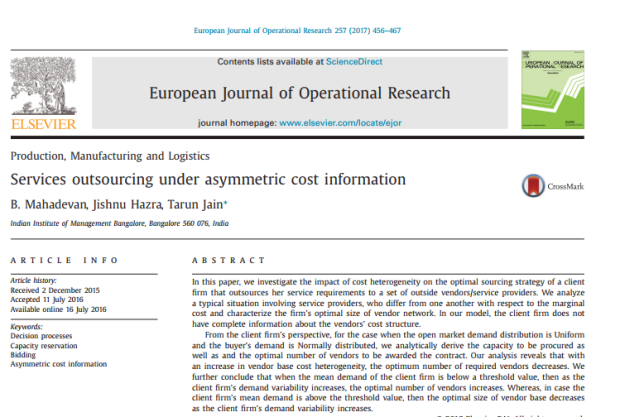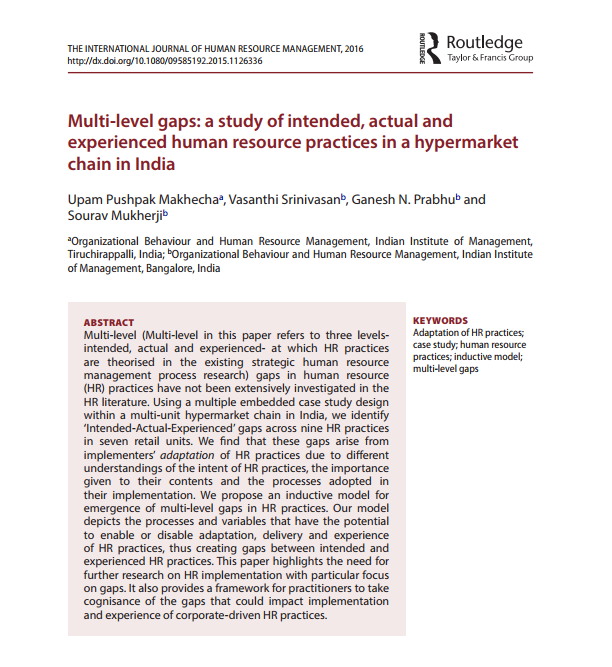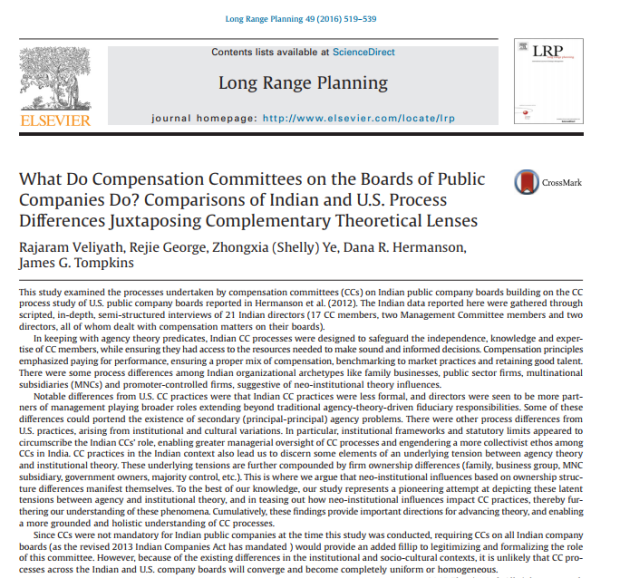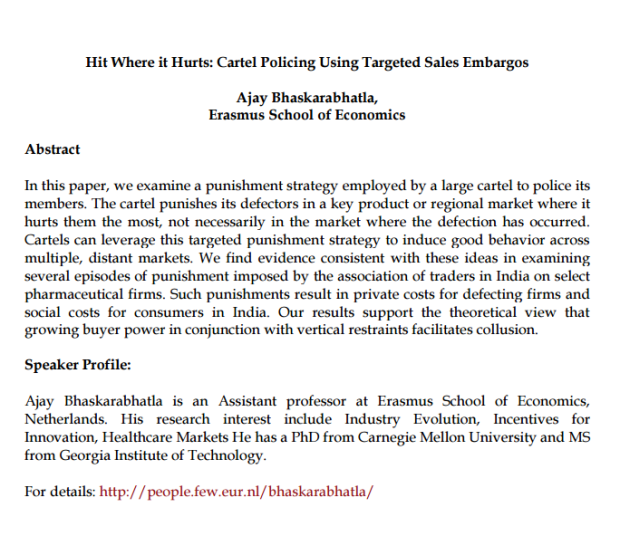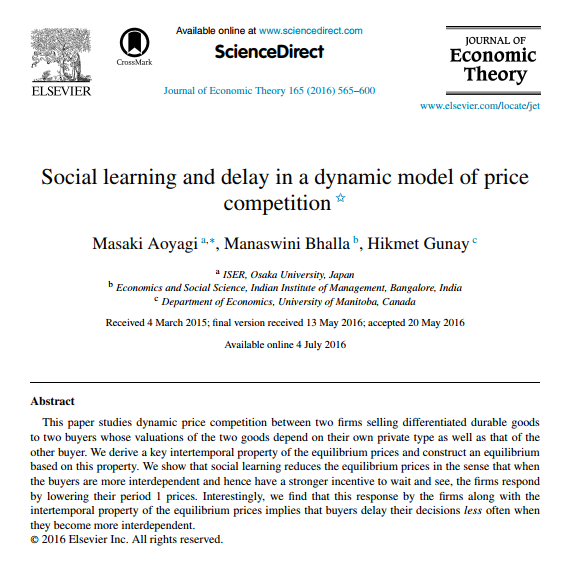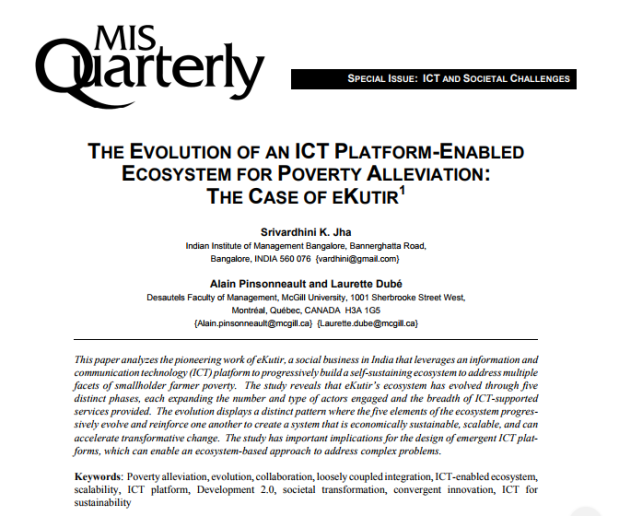Faculty members at IIM Bangalore generate knowledge through cutting-edge research in all functional areas of management that would benefit public and private sector companies, and government and society in general. The knowledge generated by IIMB faculty appears in leading academic journals with high citation index and impact factor. Many textbooks and working papers are written on a regular basis. Research carried out by IIMB is used to augment new courses and executive education programmes.
Economics Letters
Journal Title: Financial market segmentation and choice of exchange rate Regimes.
Abstract
We study the choice of exchange rate regime in a small open economy with segmented asset markets subjected to financial sector shocks. We show that the state-contingent optimal policy facilitates risk sharing between asset market participants and non-participants, and is counter cyclical. Our results establish that contrary to existing literature, flexible exchange rates mimic optimal policy and welfare dominates fixed exchange rates.
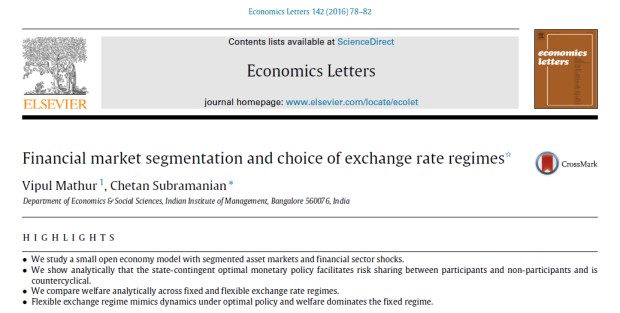
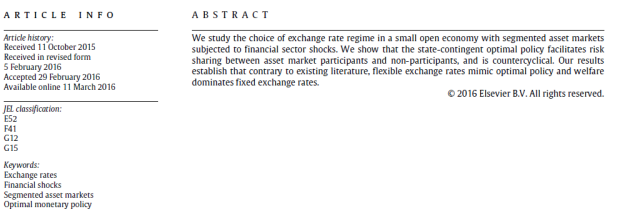

Written by,
Vipul Mathur, Indian Institute of Management Bangalore.
Chetan Subramanian, Professor of Economics & Social Sciences, Indian Institute of Management Bangalore.
Read More @ Financial market segmentation and choice of exchange rate Regimes
